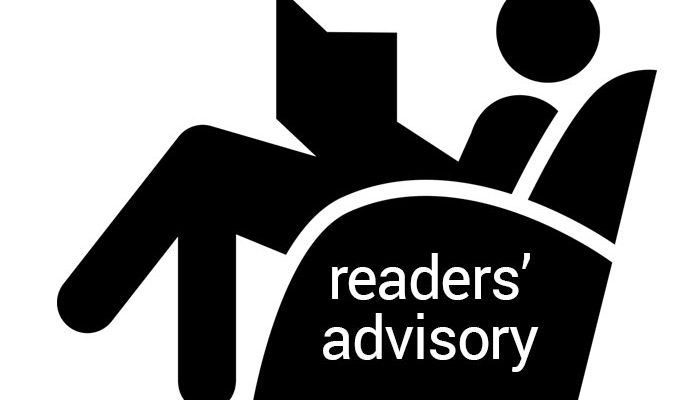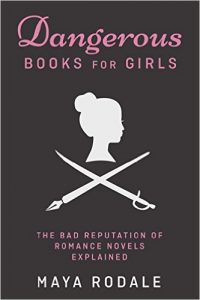It’s a new year and a great time for making reading resolutions. One form this resolution may take is to respond to a Reading Challenge. Taking this type of challenge can not only be fun, but also a great opportunity to change some of our entrenched reading habits.

Romance Novels: More Than Just Trashy Books
I had the great honour of speaking to the Ontario Library Association’s conference about romance novels. While these books are incredibly popular — this genre is the second largest category of fiction — there are many misconceptions about how these love stories really serve readers.
 I tried to dispel some of these myths in my speech, as well as my book Dangerous Books For Girls: The Bad Reputation of Romance Novels Explained. There is so much to say about romance novels—who writes them, who reads them, why our culture dismisses them—but here I’ll share a bit about how romance novels are more than the vapid, fluffy, girl-meets-boy stories they’re so often assumed to be.
I tried to dispel some of these myths in my speech, as well as my book Dangerous Books For Girls: The Bad Reputation of Romance Novels Explained. There is so much to say about romance novels—who writes them, who reads them, why our culture dismisses them—but here I’ll share a bit about how romance novels are more than the vapid, fluffy, girl-meets-boy stories they’re so often assumed to be.
First, what is a romance novel? The simple and official definition from the trade organization romance writers of America is this: All romances have a central love story and an emotionally satisfying ending.
Sorry, Gone With The Wind doesn’t count!
Romance novels are often derided because of their focus on love and relationships—especially the heroine’s focus on these things. After all, does James Bond care if anyone likes him? No. But the fact is, we don’t live in a vacuum and many of us are all trying to get through the day while balancing our individuality and the relationships in our lives. And we want to be loved for who we are. Reading books that explore this is a way for us to do so as well (without getting out of bed!).
But romance novels are about more than just the heroine’s quest to get the rakish vampire duke to forsake all others for her. It’s hard work getting to happily ever after. For example, what do you do when your hot date turns out to be a suspect in the murder you’re investigating, or how do you deal when you suddenly become a werewolf and then transition back to human form but your clothes were destroyed so now you’re naked in public … Everybody’s got problems.
But even the most absurdly unrealistic plot is coupled with internal obstacles that are very relatable to real people in the real world. When we read, we are identifying and empathizing with the characters. When we read and write these stories, we are exploring, experimenting, negotiating, and experiencing things that are, at heart, really real issues to real people.
For example:
In J.R. Ward’s Black Dagger Brotherhood series, those hunky and dangerous Vampires grapple with love that conflicts with their sacred duties to the brotherhood. Many of us experience that tension between our personal desires and loyalty to familial expectations.
Courtney Milan’s Victorian set romance, The Countess Conspiracy features a brilliant female scientist and the man who presents her ideas to the world as his own—because no one would listen to a woman. Have you seen the headlines about the obstacles women in STEM fields face.
It Had To Be You by Susan Elizabeth Phillips is about the “bimbo blonde” who inherits a football team and must learn to how run it when no one believes she can do it—including the hot coach who is resentful of his new lady boss. And even including herself. Sounds like Lean In, right? Sounds like many women’s struggles to be seen — and loved and valued — for their brains as well as their bodies. Not just by others, but by themselves too.
In Pride and Prejudice, Elizabeth does the unthinkable in rejecting Darcy — and by extension her family’s future security — all for her own “selfish” ideas of love and respect. Holy crap, a woman just valued her own needs above those of her family! And OMG it turns out okay!
So much for this purely escapist fiction, huh? Romance novels are a totally entertaining way to explore real life issues.
Here’s the “surprising” truth about romance readers: while there are all sorts of stereotypes about them—some true, some not—they are just people who love a good story that speaks to the heart, ends well and gives them joy.
For some romance novel recommendations, check out my blog.
Maya Rodale began reading romance novels in college at her mother’s insistence. She is now the bestselling and award winning author of numerous smart and sassy romance novels. A champion of the genre and its readers, she is also the author of the non-fiction book Dangerous Books For Girls: The Bad Reputation Of Romance Novels, Explained and has written for The Huffington Post, NPR, Bustle.com and more. Maya lives in New York City with her darling dog and a rogue of her own. Visit her online at www.mayarodale.com or follow her on Twitter: @mayarodale.
